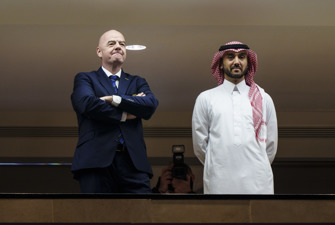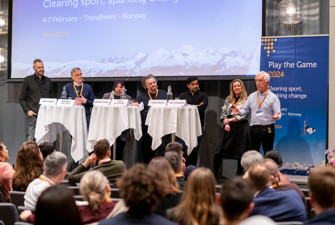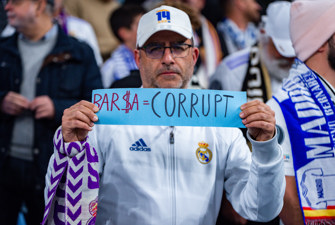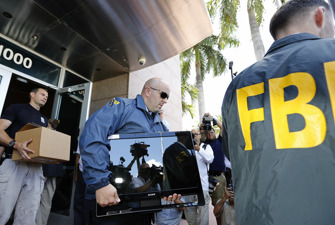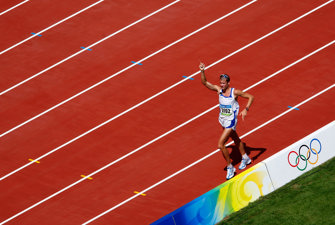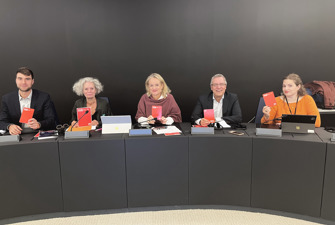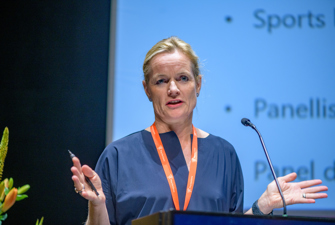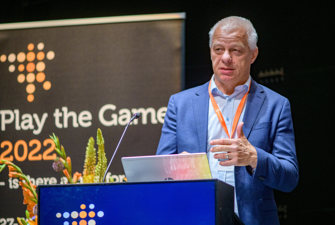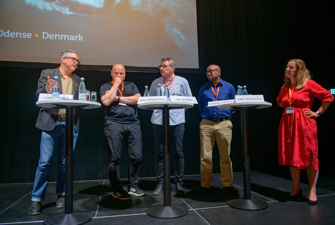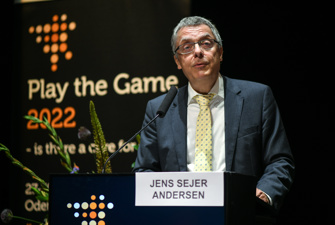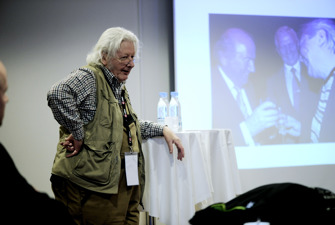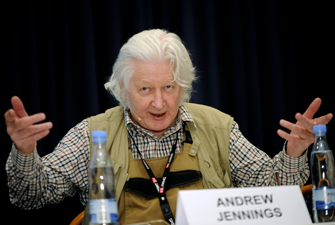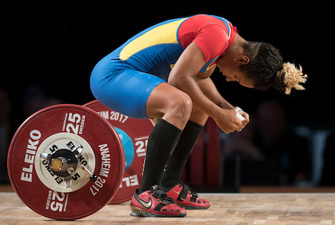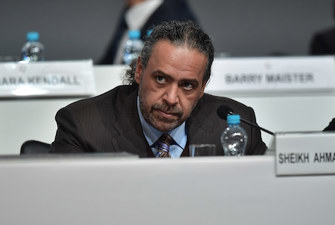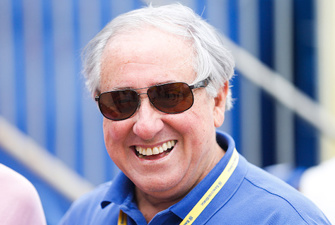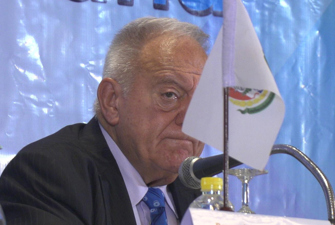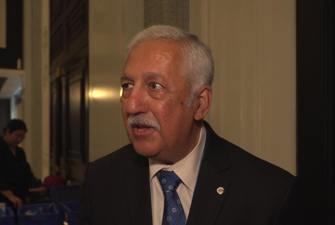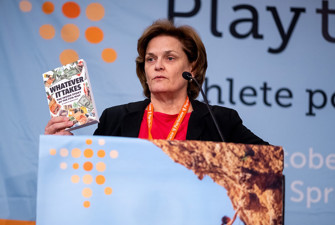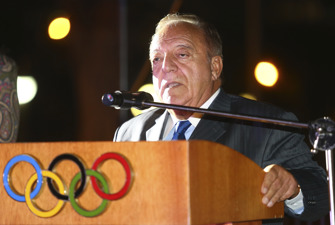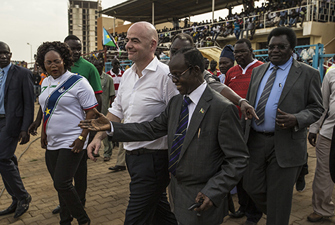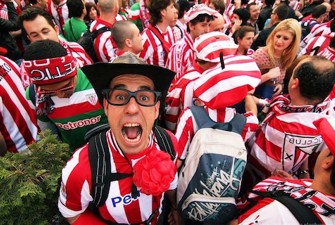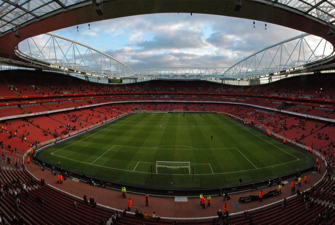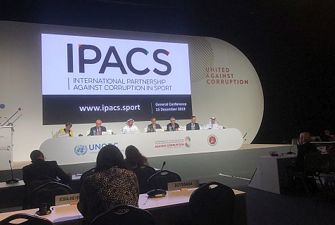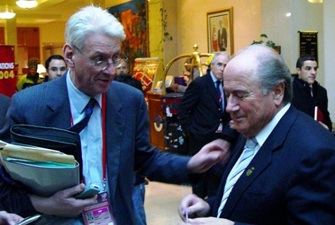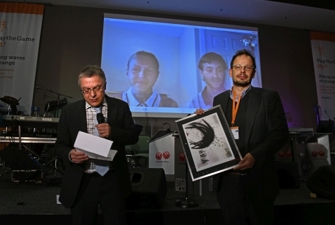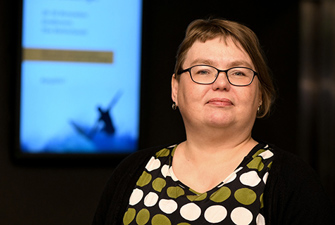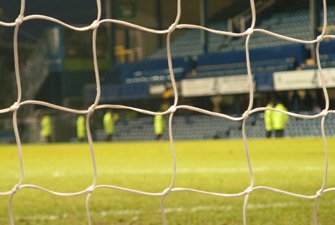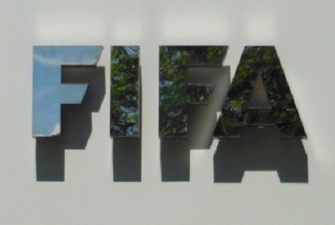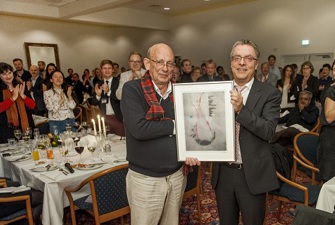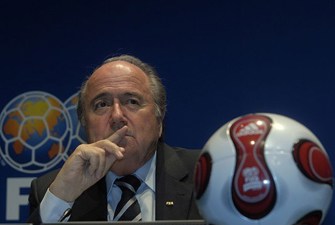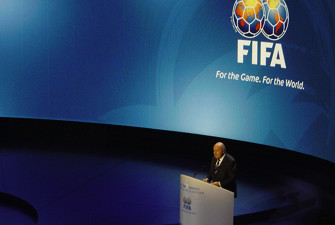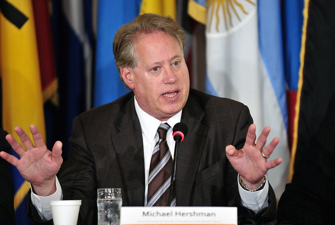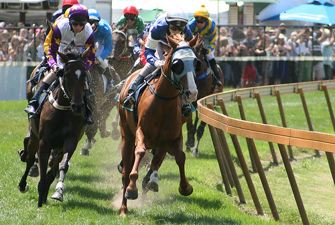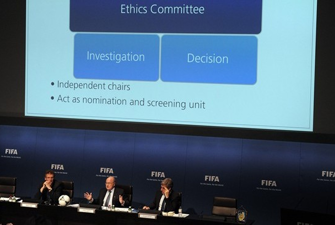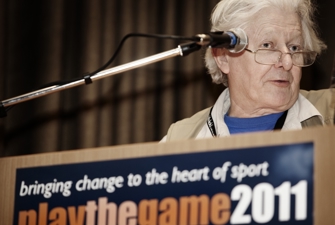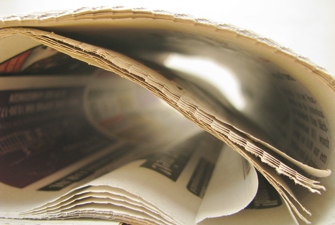Journalists investigating sports corruption exposed to many kinds of risks
For some journalists, reporting on integrity breaches in sport comes at a price, says this paper and presents various dangers that sports journalists face. The paper is commissioned by EPAS as part of their work with UNESCO’s Kazan Action Plan.
This paper was commissioned by the Enlarged Partial Agreement on Sport (EPAS) under the Council of Europe as part of its work for UNESCO’s Kazan Action Plan in the field of integrity of sport.
(Updated 23 April 2019)
The role of journalism in detecting breaches of integrity in sport
When British investigative journalist, Andrew Jennings, began investigating the International Olympic Committee (IOC) in the early 1990's, some of his colleagues made fun of him for looking at what they thought to be an unimportant area of public life. Writing for the International Review for the Sociology of Sport, he recalls his own reply: "Sports organisations are in the public sphere. They're backed by public money. They wield power. Why should they escape scrutiny?"
Despite the diligent work of Andrew Jennings to uncover the corruption at the heart of the IOC and later the International Football Federation, FIFA, the fact is that the vast majority of media coverage of sports does not contain much scrutiny.
The International Sports Press Survey produced for Play the Game in 2011 showed that newspaper coverage in 22 countries focused almost exclusively on sports performances in the form of match reports, comments on performances and previews of upcoming competitions and matches.
Journalists rely on athletes, coaches and representatives from sports organisations to produce their stories, and access to these sources are often carefully managed by sports organisations. This reliance has lead to increasing commercialisation of sports news where journalists agree to mention sponsors or advertisers to get interviews, and it has also promoted self-censorship as journalists fear being cut off from key sources if they are too critical.
The watchdogs of sport are mainly investigative journalists
The task of uncovering that which some stakeholders in sport would prefer to be kept in the dark mainly falls to an increasingly smaller group of investigative journalists - many of whom are independent freelance journalists without the support and protection of a larger media organisation.
They painstakingly put together their own stories but some also work on unravelling the stories hidden in documents and information leaked by whistleblowers. That was the case in 2014 when a senior figure inside FIFA leaked millions of documents to The Sunday Times.
These so-called FIFA Files lead to a series of articles that showed how Mohamad bin Hammam, Quatar's top football oficial, had masterminded a plot to buy the 2022 World Cup for Qatar.
In 2016, more than 60 journalists working for media in 12 different countries partnered within the framework of the European Investigative Collaborations and began publishing stories based on the largest leak of documents in the history of sport. The Football Leaks have revealed corruption among top officials, clubs, agents and players in many different countries, and the stories continue to be unearthed and published. Corruption is one way of breaching the integrity in sport, but journalists continuously uncover breaches in other areas too:
- In 2008, Canadian investigative journalist, Declan Hill, published his book "The Fix: Soccer and Organized Crime" that details the methods and motives of match-fixers in football. According to Hill, the book has helped spark over thirty national police investigations, and the author has also testified about his findings before the International Olympic Committee, the Council of Europa and numerous national sports agencies.
- In 2014, German investigative journalist Hajo Seppelt's documentary "Doping Top Secret: How Russia makes its winners" was broadcast on ARD and presented evidence of state sponsored systematic doping in athletics and other sports in Russia. The documentary led several figures in international sports organisations and anti-doping institutions to eitherresign their posts or being suspended. In June 2016, a follow-up documentary led the International Association of Athletics Federation to extend its suspension of its Russian Association and almost all Russian athletes were not allowed to take part in the Olympic Games 2016.
- In 2016, the local US newspaper Indianapolis Star's investigative team uncovered sexual abuse within USA Gymnastics believed to have affected more than 150 young girls including Olympic champion Simone Biles. Team doctor, Larry Nasser, was later sentenced to 175 years in prison for sexual assualt, the board of USA Gymnastics was reorganised, and the US Olympic Committee announced changes to its policy for reporting abuse.
The dangers of sports journalism
Reporting on sports comes at a price for some journalists. In 2017, an academic study published in the book 'The Assault on Journalism' showed that sports journalists regularly are subjected to violations of media freedom and personal safety.
Analysing 78 reports in the public domain about incidents that took place between 2010 and 2016, the study documented that sports journalists have been banned from press conferences, stadiums or events, and some have had their passports seized or been denied accredition when trying to enter a country to cover a sports event. The personal safety of sports journalist was compromised through arrests and detentions; physical and verbal assaults; abduction; attacks; physical, verbal and digital threats of violence or death; legal actions; damage to property; personal and digital sexual abuse; and killings.
For instance, Andrew Jennings has been banned from attending press conferences at the IOC and FIFA; Hajo Seppelt received so many death threats for his work on doping in Russia that ARD had to hire security personel to protect him and his colleagues; and a Spanish judge issued an injunction ordering the 12 European media organisations to stop publishing revelations from the Football Leaks.
Media organsiations and journalists are integral parts of a sports world fuelled by strong economic interests and high emotions, where a wide range of stakeholders are monitoring and trying to affect how journalists cover issues dear to them.
The high number of stakeholders is a key feature of this specific subfield of safety of journalists where perpetrators of violations against sports journalists include such different groups as sports fans, athletes and coaches, owners and officials of sports clubs and associations, and international sports federations. Police and political authorities also feature prominently on the list particularly in relation to mega-events. Even the Islamic terrorist group Al-Shabaab in Somalia has been targeting and killing sports journalists for glorifying what the group calls "satanic sports".
Considering the wide range of stakeholders in sport as well as the current low level of research and understanding of the threats faced by journalists uncovering breaches of integrity in the world of sport, it is difficult to identify specific challenges that should be overcome to ensure that journalists can continue to act as watchdogs in this particular part of the public sphere.
More research is needed to determine the exact nature of the problems, their extent, their impact, how they should be handled, and who should be involved in protecting sports journalists from harm or (self)-censorship. It is an important first step to acknowledge that the problems exist. The next step would be to build mechanisms that ensure that sports journalists are encouraged to report the violations they experience in order to inform the search for solutions.
